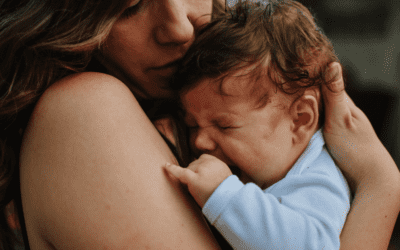Baby Settler Blog
What is the Difference Between Fussing and Crying
Here’s the reality. Your baby is going to cry. And, sometimes your baby’s cry is going to be like fingernails on a chalkboard. But I want you to know crying can be normal. All crying is not the same. Therefore, as you get to know your baby, you will get to know her cry.
Sometimes, your baby is going to need to cry.
Did you know babies can cry to burn off energy? When baby’s get overstimulated (or sensory overload), crying will be your baby’s way to “deal with it”. For example: Your baby has been awake for WAY longer than their ideal wake window for whatever reason. Crying will very likely be your baby’s way to help get their selves to sleep.
An Example of When Crying is Normal
One day I walked into a couple’s home to help support them with their newborn baby. The mom said, “She is awake all the time. She never goes to sleep.” The baby was having weight gain issues, and the pediatrician was worried because she didn’t seem to be feeding well. I helped with the feeding and as expected, the baby fell asleep before she could take a “full feeding.” After some effort, we got the baby to take a full feeding, and then I explained the importance of getting good pockets of rest between feedings in order to get full feedings each time. Baby girl was so overstimulated she was having a really hard time falling asleep. I swaddled her, placed her on her side (on my lap), and used a tiny jiggle motion to coax her to sleep. She cried frantically for about two minutes, and then she was OUT! She fell asleep and slept for three hours. It was the longest period of uninterrupted sleep she’d had since getting home from the hospital (two weeks prior).
Why is This Important?
I’m telling you this because I want you to know that your baby crying can be normal. It’s not your job to make sure your baby never cries. And sometimes, crying will be just “the thing” your baby needs! Your job is to make sure your baby feels love and security through the crying. When you’ve addressed all your baby’s needs (fed, clean diaper, burped, no hair tourniquet…or overly “helpful” sibling) and your baby is still crying: it is OKAY. In this situation we look to sleep, you want to support your baby’s sleep environment, and you want to help your baby get sleep.
THE Difference Between Crying and Fussing
Now, let’s discuss the difference between fussing and crying. Fussing isn’t as intense as crying. Baby fussing isn’t too unlike when we’re in need of something and crying always involves tears. Fair warning, fussing will follow your baby into early childhood! But for now, fussing will almost always be your warning sign that your baby is slipping past his optimal wake window.
When you are putting your baby down to sleep after the “fussing” has started, fussing is okay. Expect it. Letting your baby fuss (from day one) for a few minutes isn’t going to cause your baby to have attachment issues. In fact, using a pause for up to five minutes may give your baby the opportunity to drift to sleep (or back to sleep).
An important note: when your baby is in the first three months of her life, you want to plan to feed on cue, with early feeding cues (before your baby becomes fussy). For example, if your baby is waking up from sleep and giving you early feeding cues, you don’t want to “pause” for five minutes before starting the feeding.
If you feel like you need more help or support with this topic, the Baby Settler online course, Babies Made Simple, will help you navigate this!
You’ve got this!
Hillary
How Often Should Your Baby Nap?
When you get home with your newborn, you’ll see that a large part of the day will consist of them napping. The first few weeks will consist of short naps and regular feeds. Of course, as a new parent, you may be asking yourself: “Is my baby sleeping enough?”, “Is my...
What To Do When Your Baby Cries
Hearing your baby cry and trying to soothe them without any success can get overwhelming quickly. It can be difficult to figure out exactly why your baby won’t stop screaming. They’re not crying just for the sake of it – your baby is telling you something very...
5 Tips For Sleep Training Your Baby
As your newborn gets older and can self-soothe, you can start sleep training your baby so that you can get something most new parents dream of experiencing again: a full night of sleep! When it comes to extending your baby’s night-time snooze, there are a few things...










